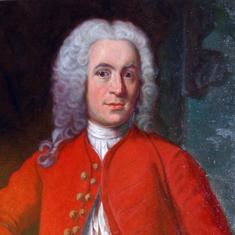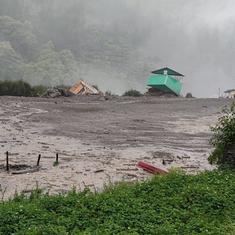Rush Hour: Bangladesh court orders Hindu monk’s arrest, Moody’s cuts India growth forecast and more
Become a ‘Scroll’ Member to get Rush Hour – a wrap of the day’s important stories delivered straight to your inbox every evening.

We’re building a brand-new studio to bring you bold ground reports, sharp interviews, hard-hitting podcasts, explainers and more. Support Scroll’s studio fund today.
A Bangladesh court has ordered the arrest of Hindu religious leader Chinmoy Krishna Das in four fresh cases linked to vandalism during a deadly clash with the police in November. Das, who has been in jail since November 25 for allegedly disrespecting the national flag during a rally, now faces five cases, including one of murder and another of sedition.
A November 26 scuffle between his supporters and lawyers in Chattogram left one lawyer dead. India’s Ministry of External Affairs has expressed concern over the treatment of minorities in Bangladesh and urged a fair trial for Das. Dhaka dismissed the remarks as interference in internal matters.
Das is a former associate of the International Society for Krishna Consciousness, or ISKCON. The group distanced itself from Das, but defended his right to peacefully protest for the welfare of Hindus in Bangladesh. Read on.
Global ratings agency Moody’s has cut India’s growth forecast for 2025 to 6.3%, down from 6.7%, citing global trade uncertainties and rising geopolitical tensions, particularly with Pakistan. In its May Global Macro Outlook, the agency warned that instability in economic policy and escalating conflict could dampen business and consumer confidence.
Tensions between India and Pakistan have spiked following the April 22 terror attack in Pahalgam that left 26 dead, mostly Hindu tourists, after gunmen allegedly singled out victims by religion.
Moody’s said prolonged friction could not only strain India’s economy but also severely affect Pakistan’s financial stability, derailing its fiscal recovery and limiting access to external funds. For 2026, the agency expects India’s growth to improve slightly to 6.5%. Read on.
The Kerala government has told the Supreme Court that it plans to withdraw its petitions against delays by Governor Arif Mohammed Khan and President Droupadi Murmu in acting on state bills, citing the court’s recent ruling in a similar case stemming from Tamil Nadu.
The April 8 judgement in the Tamil Nadu case imposed a three-month timeline for the president to decide on state bills and deemed that it was unlawful for the governor to withhold assent to bills. Kerala’s counsel KK Venugopal argued that the ruling applied to their case too, making the petitions infructuous.
However, Solicitor General Tushar Mehta opposed the withdrawal, calling the constitutional issues too serious to be dropped lightly. The court allowed Kerala’s withdrawal but listed the matter for further hearing on May 13. Read on.
The Supreme Court has criticised the Punjab government for its “high-handedness” in refusing to construct the Sutlej-Yamuna Link Canal, despite a 2002 court order. The canal is key to distributing water from the Ravi and Beas rivers among Punjab, Haryana and other northern states.
While Haryana built its section decades ago, Punjab stopped work citing unrest and later passed a law to cancel the agreement, which struck down by the court in 2016. The bench reminded Punjab that it could not ignore binding orders.
Punjab argued the canal remained a volatile issue in the border state. The court urged both states and the Centre to find an amicable solution before the next hearing on August 13. Read on.
If you haven’t already, sign up for our Daily Brief newsletter.









